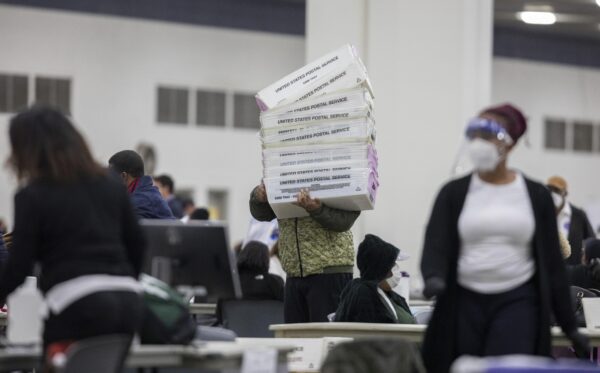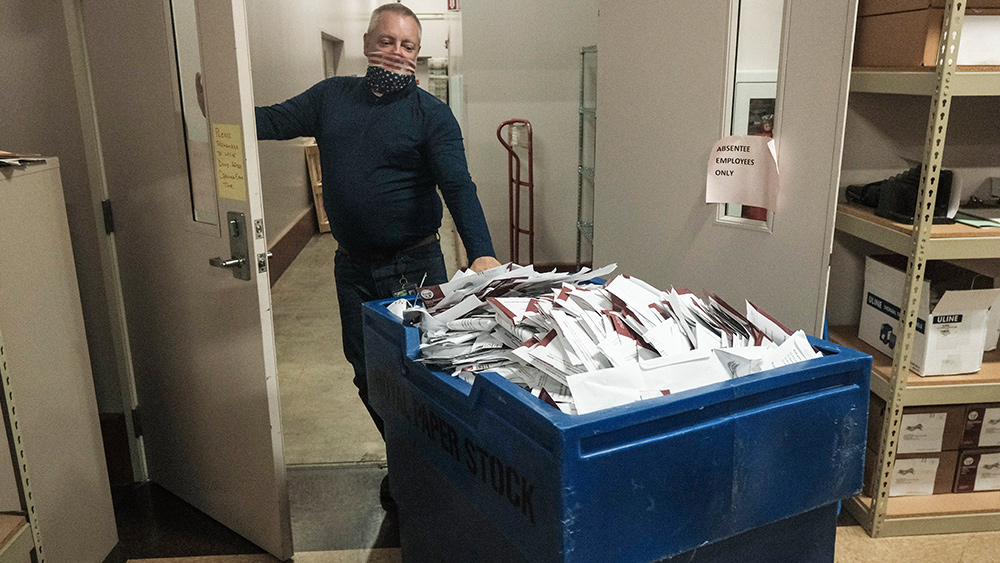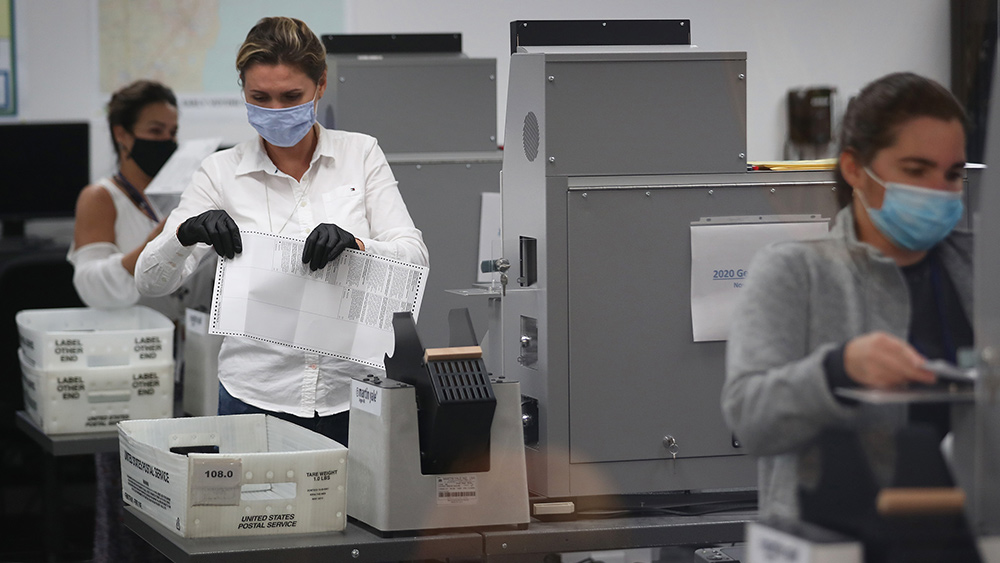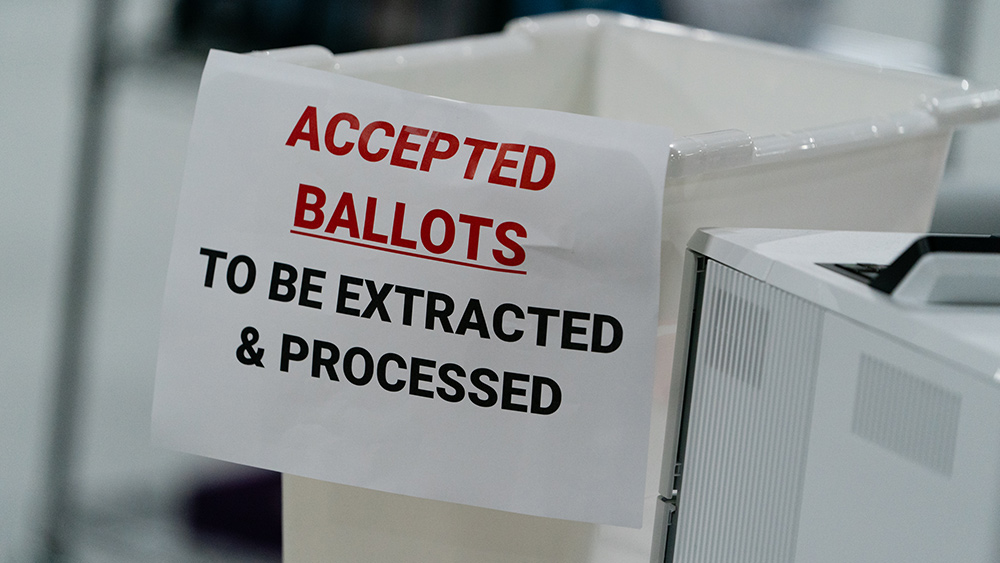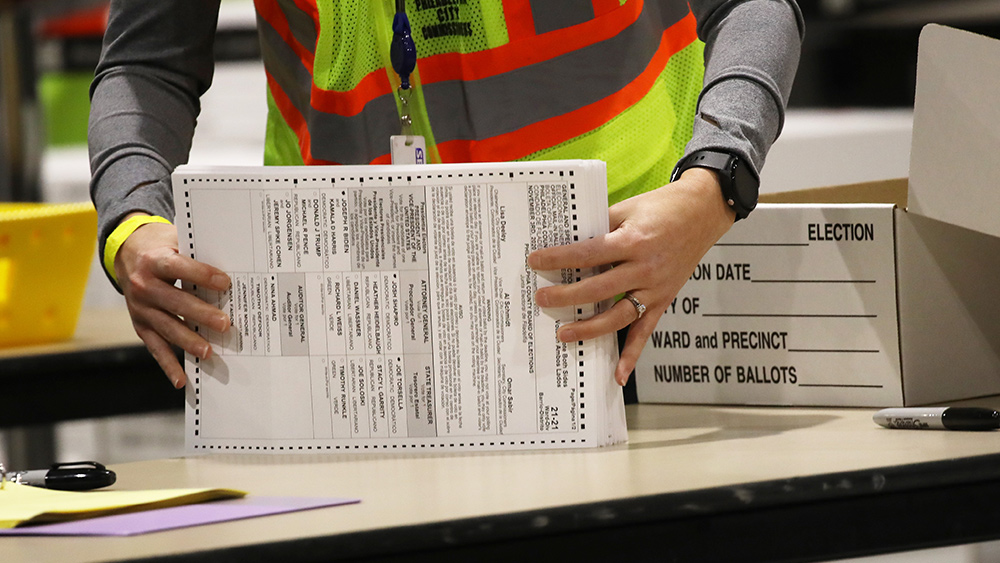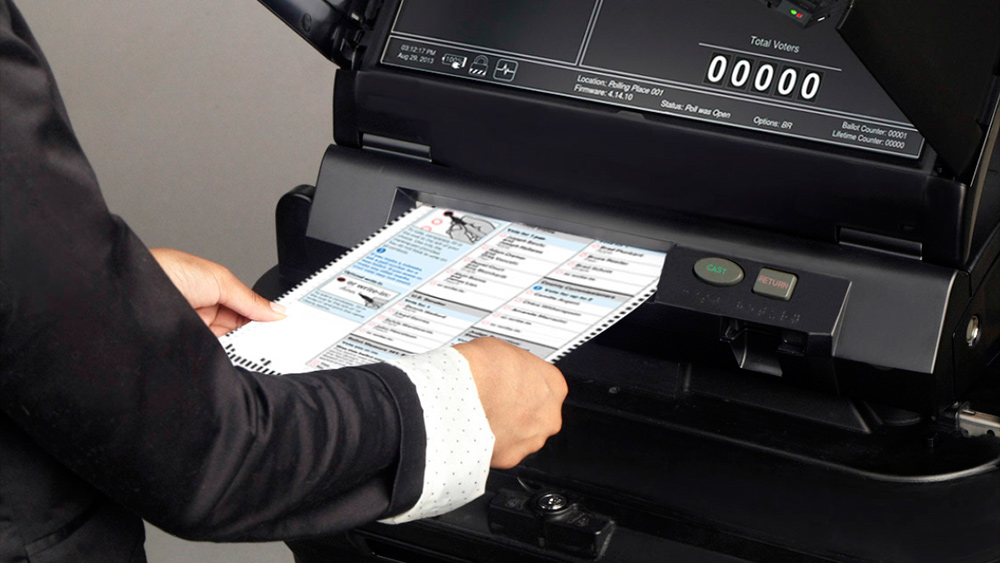Machines may permanently take over human jobs amid coronavirus pandemic
09/20/2020 / By Ramon Tomey

A study by the Federal Reserve Bank of Philadelphia released Sept. 14 has found that machines may take over human jobs due to the ongoing coronavirus pandemic. The study comes after companies laid off a portion of their workforce as part of cost-cutting measures due to the effects of COVID-19.
According to the study by economists Lei Ding and Julieth Saenz Molina, industries that can be automated have higher mass layoff numbers – increasing the risk that these jobs will be obsolete. Furthermore, they mentioned that COVID-19 sped up automation in industries badly affected or did not allow a remote work setup. The economists warned that any job losses brought about by automation could become permanent – if the pandemic evolves into a prolonged economic crisis “similar to what happened during the recovery from the Great Recession.”
Industries already facing a high risk of automation lost more jobs than those facing fewer threats from technology, the study noted. Jobs such as hotel desk clerks, shuttle drivers, toll collectors, retail salespersons, parking attendants and slaughterhouse workers were at the most risk of being replaced by machines.
In addition, minority workers bore the brunt of automation’s effects as they experienced more job losses than non-Hispanic whites.
The study concluded by saying the threat of job losses caused by automation “needs to be monitored carefully.” It also suggested improving the existing safety net for workers, preparing for the complex workforce transitions brought about by automation and government extending help to workers whose jobs were displaced by machines.
Will humans still be needed in a robot-filled workplace?
While the two economists focused on the effect of automation in the U.S. in their study, another report from months ago focused on its effects on the labor market in France. A May 2020 study by Massachusetts Institute of Technology economist Daron Acemoglu and two others scrutinized 55,000 French manufacturers using data from different sources such as the French Ministry of Industry and client data from French robot suppliers. Five hundred ninety-eight of these French manufacturers invested in robots from 2010 to 2015 to augment their manufacturing.
The study by Acemoglu’s group found that French manufacturers who invested most in automation had increased productivity and profits, and a reduced portion of their profits going to human workers. However, they still took in more workers as the investments in technology-fueled more growth and market share. Some of the French companies investing hugely in automation were involved in the automotive, pharmaceutical, chemical, metal and machinery, plastics and food and beverage industries. (Related: Rise of the robots: 8 professions that will be taken over by AI technology.)
On the other hand, French manufacturers who invested the least in automation still gave the same portion of their profits to their workers. However, employment in their companies took a dive as their competitors invested more in automating their assembly lines. Industries that invested the least in automation included paper and printing, textiles and apparel, appliances and minerals.
Acemoglu commented that the study’s results show a difference from what is happening in the U.S., where job loss is closely linked to automation. On the other hand, automation in French companies was linked to expanded employment—at the expense of their competitors. He added that “very large firms” in France were the only ones able to invest in automation, contributing to the smaller portion of profits going to human workers in the country.
Just like in France, a number of giant companies in the U.S. have been pushing to automate their work processes formerly done by human workers.
First and foremost of these is e-commerce company Amazon, who plans to remove human cashiers from its Whole Foods Market stores across the country. A touch-less payment system will take the place of human cashiers, enabling customers to pay for their food as they exit the store.
In addition, Amazon is closely monitoring its human workers at Whole Foods to avoid them establishing worker unions – using the same technologies they plan to replace human workers with. Robots do not complain about unsafe working conditions, long working hours and small wages.
Find out more news about the gradual plan to replace human workers with artificial intelligence and robots at Computing.news.
Sources include:
PhiladelphiaFed.org [PDF]
Submit a correction >>
Tagged Under:
AI, Amazon, artificial intelligence, automation, coronavirus, covid-19, Jeff Bezos, job automation, job layoff, jobs, machines, mass layoff, pandemic, retrenchment, robotics, robots, SARS-CoV-2, unemployment, Whole Foods, workers, Wuhan coronavirus
This article may contain statements that reflect the opinion of the author
RECENT NEWS & ARTICLES
Trump.News is a fact-based public education website published by Trump News Features, LLC.
All content copyright © 2018 by Trump News Features, LLC.
Contact Us with Tips or Corrections
All trademarks, registered trademarks and servicemarks mentioned on this site are the property of their respective owners.





